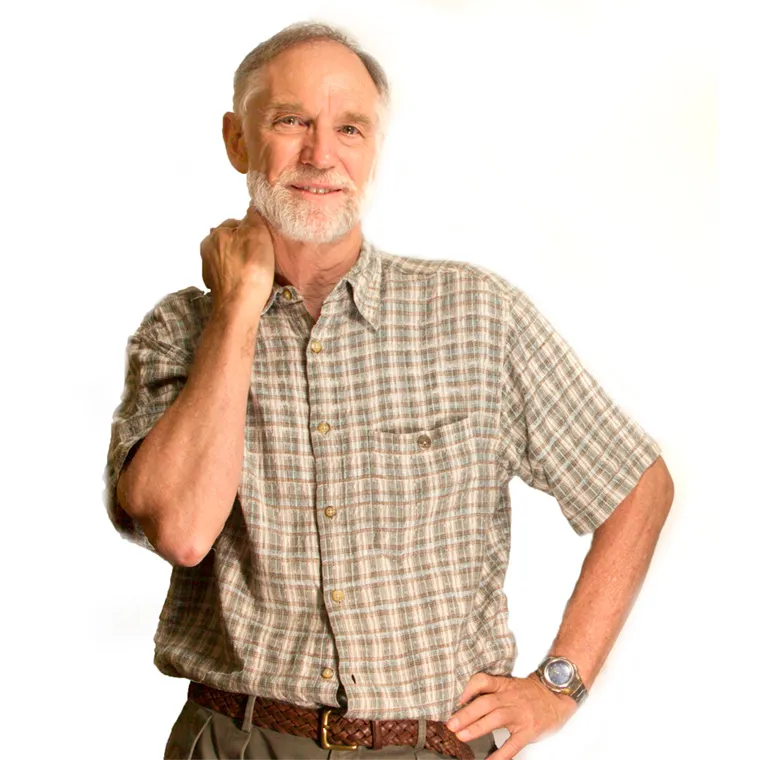Peter Chesson
Positions and Education:
- 2011-present, Visiting Professor, National Chung Hsing University, Taiwan
- 2005-present Professor, Ecology and Evolutionary Biology, University of Arizona.
- 1999-2005 Professor, Section of Evolution and Ecology, University of California, Davis
- 1998-1999 Associate Professor, University of California, Davis.
- 1990-1997 Senior Fellow, Research School of Biological Sciences, Australian National University.
- 1985-90 Associate Professor of Zoology, Botany and Statistics, Ohio State University.
- 1981-5 Assistant Professor of Zoology, Ohio State University.
- 1977-81 Postgraduate Research Biologist, University of California, Santa Barbara.
- 1974 B.Sc.(Hons). University of Adelaide, Australia
- 1978 Ph.D. (Departments of Statistics and Zoology). University of Adelaide, Australia
Honors and Awards:
- 1973 Sir Ronald Fisher Memorial Scholarship in Mathematical Statistics
- 1974 CSIRO Postgraduate Studentship
- 1977 CSIRO Postdoctoral Studentship
- 1987 Fellow of the American Association for the Advancement of Science
- 2005 Outstanding Mentor, Consortium for Women and Reseach, University of California, Davis
- 2014 Bernoulli Lecture, École Polytechnique Féderale De Lausanne, Switzerland.
- 2015 Fellow of the Ecological Society of America.
- 2015 5th Sun Yat-sen Lecture in Ecology and Evolution.
- 2016 Lotka-Volterra Prize, Theory Section of the Ecological Society of America.
- 2016 Distinguished Visiting Professor, University of Miami.
Editorial Work:
- 1998- Board of Editors, Evolutionary Ecology Research
- 1996-8 Board of Editors, Evolutionary Ecology
- 1990-1995 Associate Editor, American Naturalist
- 1987- Editor, Theoretical Population Biology.
- 1983-6 Board of Editors, Ecological Society of America.
Research Interests:
The natural world is inherently variable. The physical environment varies on all scales and so do the organisms. Organisms are adapted to this variability, not merely hedging against uncertainty but taking advantage of opportunities that variability brings. Key research questions are how the adaptation of organisms to variability promotes species diversity and affects ecosystem functioning, how ecosystems respond to long-term climate change, and vary over landscapes. We develop fundamental theory using advanced mathematical methods, and also work with a variety of field and laboratory systems to test fundamental theory, and to understand adaptations to variable environments, and to specific environmental conditions. Key field systems include desert plant communities, tropical forests, freshwater invertebrates and vertebrates, and plants wherever they are found. In collaboration with other labs, we study plant adaptations to low light, high salinity, aridity, herbivory and to variable conditions. Key organisms are Selaginella, mangrove trees, and variegated plants.
Selected Publications:
- Li, L., Chesson, P. 2016. The effects of dynamical rates on species coexistence in a variable
environment: the paradox of the plankton revisited. The American Naturalist 188, E46-E58 - Chesson, P., Nancy J. Huntly, Stephen H. Roxburgh, Marissa Pantastico-Caldas and José M. Facelli. 2013. The storage effect: definition and tests in two plant communities. Pp 11-40 in C. K. Kelly, M. G. Bowler, G. A. Fox eds, Temporal dynamics and ecological process. Cambridge University Press.
- Chesson, P, and Kuang, J.J. 2008. The interaction between predation and competition. Nature 456, 235-238.
- Chesson, P., Gebauer, R. L. E., Schwinning, S., Huntly, N., Wiegand, K., Ernest, S. K. M., Sher, A., Novoplansky, A., and Weltzin, J.F. 2004. Resource pulses, species interactions and diversity maintenance in arid and semi-arid environments. Oecologia 141, 236-253.
- Chesson, P. 2000. Mechanisms of maintenance of species diversity. Annual Review of Ecology and Systematics 31, 343-66.


